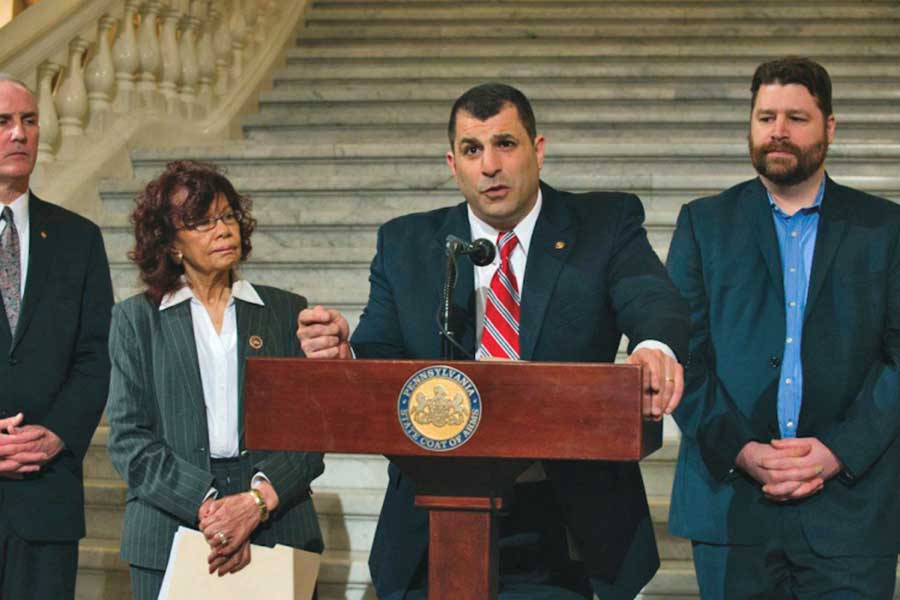An effort within the state legislature to permit the reviving of time-barred civil claims alleging child sex abuse has been scuttled.
In Pennsylvania, people over the age of 30 cannot file civil suits alleging child sex abuse.
Advocates say this age cap is unfair, because many people don’t realize they’re child-abuse victims until later in life.
In April, the state House of Representatives passed HB 1947, which would have allowed people up to the age of 50 file civil suits alleging child sex abuse. But the bill also contained a controversial provision allowing for the reviving of time-barred claims dating back to the 1960s.
Several lawmakers in the state Senate expressed concerns about the constitutionality of the time-barred provision.
Last month, the state Senate Judiciary Committee stripped the time-barred provision from the measure. And on June 30, the full Senate approved the bill without it.
The measure enacted by the state Senate allows people up to age 50 to sue their alleged molester and the institution that employed the suspect. But the measure doesn’t allow people between 30-50 to file civil suits alleging molestation that occurred prior to enactment of the bill.
The measure does eliminate all time limits for criminal charges against child-sex abusers in Pennsylvania.
The amended bill has been sent back to the state House, where leaders say it won’t be considered until the fall, at the earliest.
Attorney Marci A. Hamilton is an advocate for the reform of child sex-abuse laws. In June, she urged the state Senate Judiciary Committee to retain the time-barred provision.
“Pennsylvania’s children and adult survivors deserve at least this much respect by this body for their civil rights,” she testified.
Last week, Hamilton appeared undaunted by the removal of the time-barred provision.
“This is just one stage in the process of identifying Pennsylvania’s hidden predators and creating justice for the victims of Pennsylvania’s unfairly short statutes of limitations for child sex abuse,” Hamilton said. “I look forward to working with the impressive coalition of organizations and survivors that have come together to fight for Pennsylvania’s children.”
State Sen. Lawrence M. Farnese Jr. (D) voted against removal of the time-barred provision, but ultimately voted in favor of the amended bill.
“I carefully considered the hearing testimony, written submissions, and relevant case law, and I am not persuaded the revival clause in HB 1947 was per se unconstitutional,” Farnese said in an email. “For that reason, I would’ve preferred the bill pass the Senate without amendment. However, I supported the bill as amended because it will update Pennsylvania law to recognize the physical, emotional and psychological obstacles victims of child sexual abuse must overcome before coming forward.”
The Pennsylvania Catholic Conference, which represents 10 dioceses in the state, opposed enactment of the time-barred provision.
“PCC is taking a closer look at the amended bill,” said Amy B. Hill, a spokesperson for PCC. “I can’t say yet what it means for us. I can reiterate that no matter the final resolution with the legislation, the Catholic Church will keep its sincere commitment to the emotional well-being of individuals who have been impacted by the crime of childhood sexual abuse, no matter how long ago the crime was committed.”
In an email, Hill emphasized that dioceses throughout the state are sensitive to child sex abuse issues.
“The Catholic community enforces strict safe environment policies and offers assistance to survivors and their families. To date, Pennsylvania’s dioceses have spent more than $16.6 million on victim/survivor-assistance services such as counseling, addiction treatment, medication, etc. Millions more have been negotiated in financial settlements with survivors who sought that resolution. We will continue to offer assistance as long as it is needed.”
